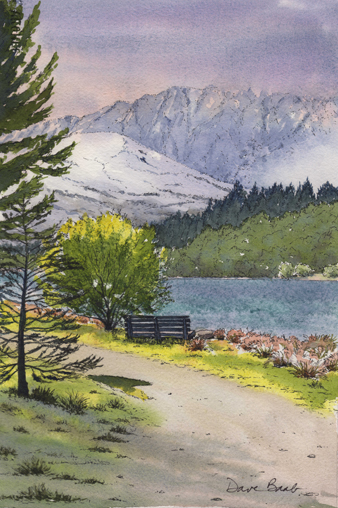Thankfulness and optimism are not the same thing. Thanksgiving Day in America gives us the opportunity to think about the differences, and to remember the deep significance of thankfulness in God’s economy.
I wrote a book on pastoral care released in 2018 by Fortress Press. One of the people I interviewed talked about the difference between optimism and thankfulness. The context of the interview was a chapter on coping with stress. Caregivers in any context need to know how to deal with their own stress, and they also need to help care recipients cope with stress better. Research shows that optimism helps people survive stress better, because how we think about the things that are happening to us makes a difference.
My interviewee, a psychiatric nurse practitioner, said that optimism can be overemphasized when talking about stress. When we focus on optimism too much, she said, we can slide into denial, which is the refusal to admit the truth or reality of something. She said thankfulness can bring about the same good results as optimism in many difficult situations, but without any denial.
How does this work?
Thankfulness is a choice to focus our eyes on good gifts. Those gifts might come from the people around us – a stimulating conversation, an act of kindness, direct help that meets a need, an encouraging word, a doctor or other professional who gives help we need, or many other specific gifts, big or small, from people in our lives.
Thankfulness also enables us to see God’s good gifts that come directly to us – an answer to a prayer, a situation that works out well despite the odds, inner strength to do something difficult, or peace that passes all understanding. Thankfulness also helps us notice the good gifts in the physical world God created – a delicious meal, the clear eyes of a child, colorful fall leaves and beautiful spring flowers, a vivid sunset, dramatic mountains, and towering clouds.
When we focus on the good gifts that are present in our lives, we do not deny the reality of pain, stress and challenges. Thankfulness involves turning our eyes to see good things even in the midst of those difficulties, and we take a moment to thank the giver of the gift.
Thankfulness nurtures relationship. David Steindl-Rast, in his beautiful book Gratefulness, the Heart of Prayer, writes, “When I acknowledge a gift received, I acknowledge a bond that binds me to the giver. . . . The one who says ‘thank you’ to another really says, ‘We belong together.’ Giver and thanksgiver belong together.” [1]
Steindl-Rast wonders if our society suffers so much from alienation because we are reluctant to offer thanks. I agree with him. It seems clear that our friendships and family relationships suffer when we feel uneasy acknowledging bonds with other people, when we hold back from expressing gratitude.
Steindl-Rast points out that everything is a gift, yet we find it hard to acknowledge gifts because we don’t like to admit our dependence. Thankfulness involves acknowledging that we belong with others and with God, and that we depend on the people around us and on God. We are not alone. We are not self-sufficient. We cannot navigate life on our own.
In contrast, when we feel pressure to be optimistic, we often feel we have to generate positivity within ourselves. Optimism can be quite individualistic, while thankfulness nurtures community.
Colossians 2:14-17 gives great advice for living in a challenging, stressful world. Note how thankfulness is woven into these words:
“Above all, clothe yourselves with love, which binds everything together in perfect harmony. And let the peace of Christ rule in your hearts, to which indeed you were called in the one body. And be thankful. Let the word of Christ dwell in you richly; teach and admonish one another in all wisdom; and with gratitude in your hearts sing psalms, hymns, and spiritual songs to God. And whatever you do, in word or deed, do everything in the name of the Lord Jesus, giving thanks to God the Father through him.”
Paying attention to the good gifts in our lives is a choice that lays a foundation for joy and nurtures joy. May Thanksgiving Day give you the opportunity to notice many good gifts in your life, and may you continue to notice those gifts as Christmas approaches.
[1] David Steindl-Rast, Gratefulness, The Heart of Prayer (New York: Paulist Press, 1984), 15-17.
COMING SOON! Don’t forget to sign up for the third seasonal retreat! On December 9, Christine Sine will lead a morning of scripture reading and quiet reflectionthat will be for many of us a much needed oasis of quiet in the midst of this chaotic season.

